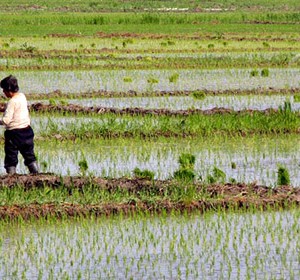The Stream, June 5: Climate Change, Water, and Electricity
Investments
Because climate change will make rivers warmer and reduce their flow, the generating capacity for coal-fired and nuclear power plants—which rely on water for cooling—will decrease by between 4 and 16 percent in the U.S. and between 6 and 19 percent in Europe in the years 2031-2060, Reuters reports, citing a study published in the journal Nature Climate Change.
The Sri Lankan government will create a state-owned company to provide bottled water to areas without safe drinking water, the Colombo Page reports. The company, however, will be managed by the same government agency that has, according to a United Nations report, failed to effectively deliver clean water in most of the country.
The Financial Times reports that pension funds are backing away from infrastructure investments. Independent fund managers are now spending more than investment banks, reversing the historical order.
Water Supplies
San Diego’s water supplier is considering a desalination plant, but a study suggests that treating wastewater to drinking water standards would cost roughly half as much per unit as desalinated water, the North County Times reports.
The Guardian reports on a team of photographers and scientists who climbed the rarely-visited Rwenzori Mountains in Uganda and the Democratic Republic of the Congo as part of a project to document the world’s glaciers before they melt.
Five years ago, quagga mussels were first detected in Lake Mead. Now, more than a trillion adults and hundreds of trillions of babies live in the reservoir. The quaggas will not be eradicated, but the Las Vegas Review-Journal reports on what scientists and water managers are doing to cope with the non-native species.
The Stream is a daily digest spotting global water trends. To get more water news, follow Circle of Blue on Twitter and sign up for our newsletter.
Brett writes about agriculture, energy, infrastructure, and the politics and economics of water in the United States. He also writes the Federal Water Tap, Circle of Blue’s weekly digest of U.S. government water news. He is the winner of two Society of Environmental Journalists reporting awards, one of the top honors in American environmental journalism: first place for explanatory reporting for a series on septic system pollution in the United States(2016) and third place for beat reporting in a small market (2014). He received the Sierra Club’s Distinguished Service Award in 2018. Brett lives in Seattle, where he hikes the mountains and bakes pies. Contact Brett Walton






Leave a Reply
Want to join the discussion?Feel free to contribute!